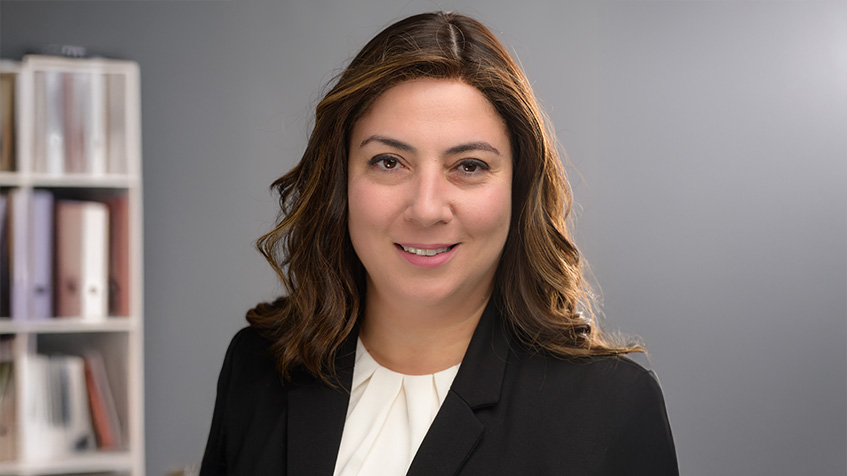27/05/2025
A BGU study reveals how diverse Israeli communities draw on hope, faith, and family to cope with the trauma of October 7 and war's aftermath
Different sectors of Israeli society have demonstrated distinct ways of coping with the events of October 7, 2023, and the subsequent "Iron Swords" War.
A study conducted at Ben-Gurion University of the Negev explored these varying coping mechanisms identifying the core values that are most important in navigating this situation and examined the factors that differentiate these groups.
The events of what became the most devastating day in Israel's history, and the ensuing "Iron Swords" War, demanded that Israeli society confront a series of tragic events alongside the ongoing combat. These included loss of life, physical and psychological trauma, and social and economic disruption.
These events triggered a wide range of responses across the diverse groups that make up Israeli society, underscoring the critical need for an in-depth understanding of personal, familial, communal, and national resilience in the face of complex crises.
Prof. Orna Braun-Lewensohn, a member of the Conflict Management and Resolution Program and Dr. Tehila Kalagy, from the Department of Public Policy and Management, analyzed the differences in how secular, traditional, religious, and ultra-Orthodox Israelis coped with the October 7th attack and the "Iron Swords" War that erupted in its aftermath. Their goal was to contribute to a deeper understanding of the resources available to Israeli society during times of crisis.
They surveyed 1,024 participants from the various social groups. The participants' average age was 43, with 32.4% identifying as secular, 16.7% as traditional, 18.2% as religious, and 32.7% as ultra-Orthodox. The survey consisted of self-report questionnaires designed to measure:
- Hope (e.g., "I draw strength from the relationships in my life," "Faith is a source of hope for me").
- Family Quality of Life (e.g., "How satisfied are you with the openness with which your family members communicate with each other?", "How satisfied are you with how effectively your family members solve problems together?").
- Sense of Coherence (e.g., "Do you ever have feelings that you'd rather not experience?", "Do you feel that the things you're involved in day-to-day lack meaning?").
- Community Resilience (e.g., "My community is prepared for emergencies," "I am proud to tell others where I live").
- National Resilience (e.g., "In times of national crisis, Israeli society will unite behind the decisions of the government and its leader," "I have complete trust in the ability of the security forces to protect Israel's population").
- Psychological/Emotional Distress (e.g., "Feeling faint or dizzy," "Experiencing sudden fear for no reason").
The analysis revealed that all groups within Israeli society demonstrated high levels of personal, familial, and communal resilience.
However, most groups reported experiencing elevated levels of psychological distress, exceeding typical Israeli norms. In contrast, the ultra-Orthodox community reported lower levels of emotional distress.
Furthermore, the findings indicated that a sense of coherence — the ability to find meaning in events, navigate the world, and comprehend one's circumstances — was a central resource in mitigating psychological distress across all groups.
Hope also emerged as a significant factor, contributing to mental well-being and reduced psychological distress across all sectors of society.
Interestingly, while national resilience proved to be a significant factor within secular, traditional, and religious society, it did not hold the same importance for the ultra-Orthodox community, highlighting their distinctiveness.
The October 7 attacks appear to have triggered a crisis of trust between the state and its citizens. However, individuals who maintained confidence that the leadership would support them during times of crisis reported experiencing less psychological distress.
Conversely, resilience among the ultra-Orthodox was grounded in social and religious values, lessening their reliance on national resilience.
These findings underscore the cultural complexities inherent in resilience and crisis within a multi-cultural nation.

"Within collectivist communities, such as the religious and ultra-Orthodox, social support networks and a strong emphasis on shared values provide individuals with a sense of security and belonging. This, in turn, contributes to lower levels of psychological distress and strengthens their sense of coherence and personal resilience," explained Dr. Kalagy.
The study's findings offer valuable insights into how crises impact Israeli society and provide a foundation for developing tailored policies for its diverse populations. Such policies can help strengthen resilience and alleviate emotional distress in the face of future crises.

"There are significant similarities in the mechanisms that explain the levels of emotional distress across all groups," Professor Braun-Lewensohn concluded. "These findings emphasize that even in a society as diverse as Israel, resilience and coping mechanisms operate on shared principles. The differences primarily lie in cultural contexts and how these resources are shaped and integrated within each group."

